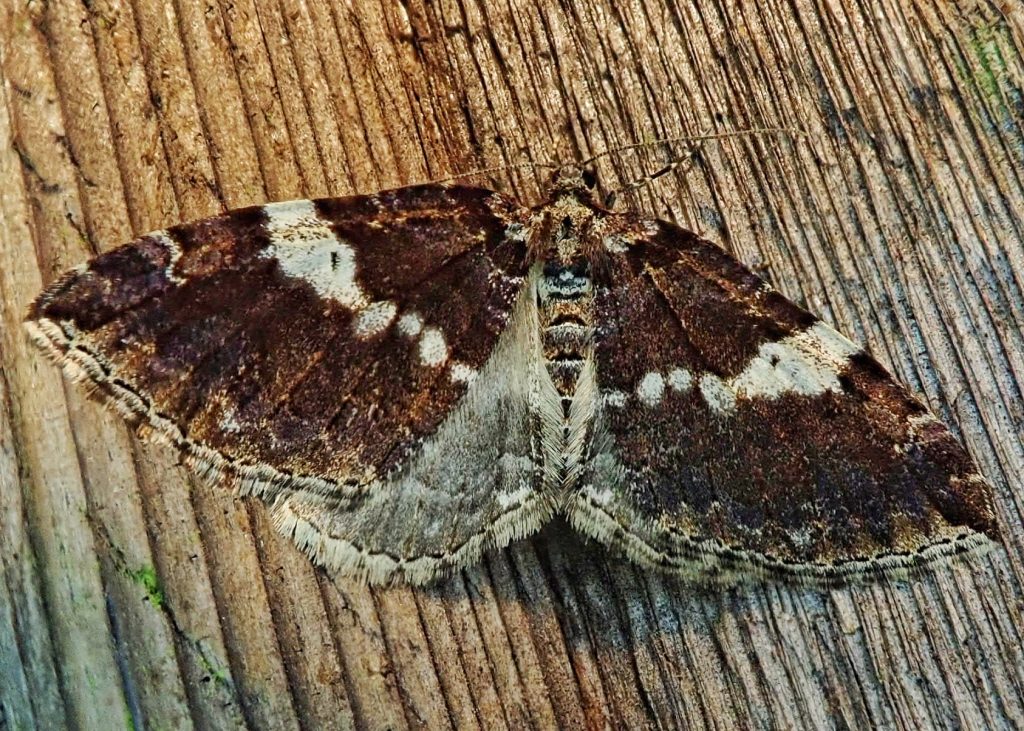
They are not kidding when they call this the Variable Carpet Moth! But that only really applies to the coloring. The underlying pattern of the transverse lines is fairly consistent, except in the median. In particular there are two diagnostic traits- the dark line extending from the postmedial line to the tip (apex) of the forewing, and the double lobed posterior bulge of the postmedial line. The combination of these two traits will distinguish this moth from all other busily patterned carpet moths.
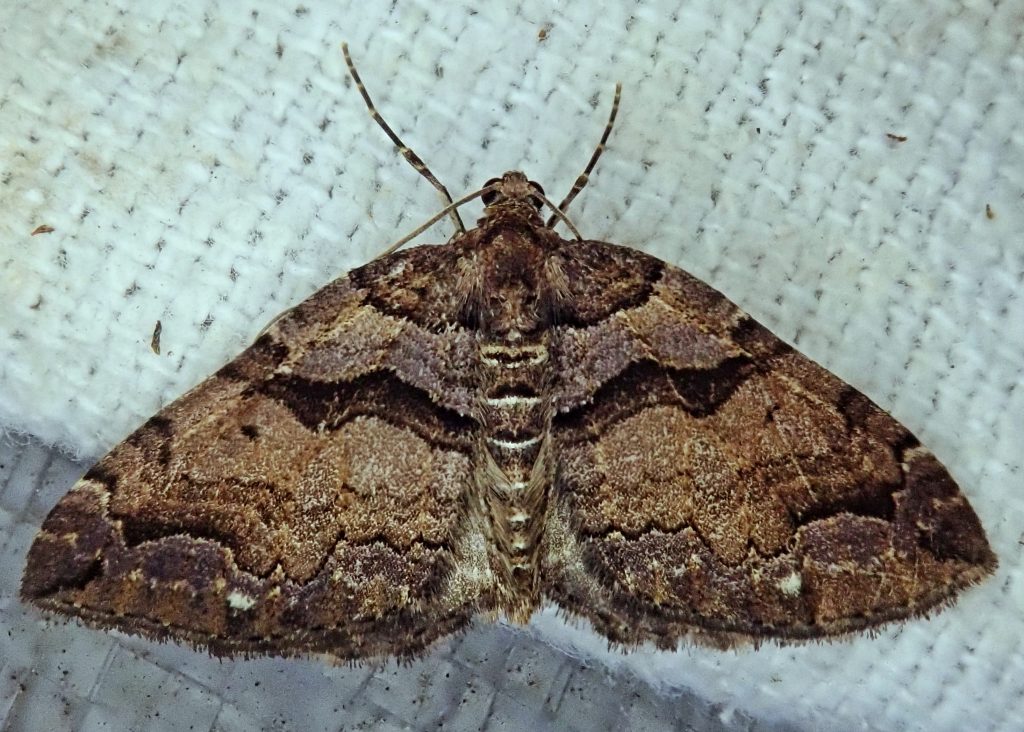
This is a medium sized moth (FW length 18-20mm) that flies in early to mid spring in forests and woodlands. It can be very common in good habitat, which in the case of the Variable Carpet Moth consists of having good populations of Rubus spp, which are its larval hosts. Rubus idaeus (Western Red Raspberry) seems to be a preferred host, but they will also utilize other Rubus spp, including salmonberry, thimbleberry, and dewberry. It can be found throughout our region, although it is uncommon in the shrub steppe of the arid interior. It is univoltine, and the larvae overwinter as pupa.
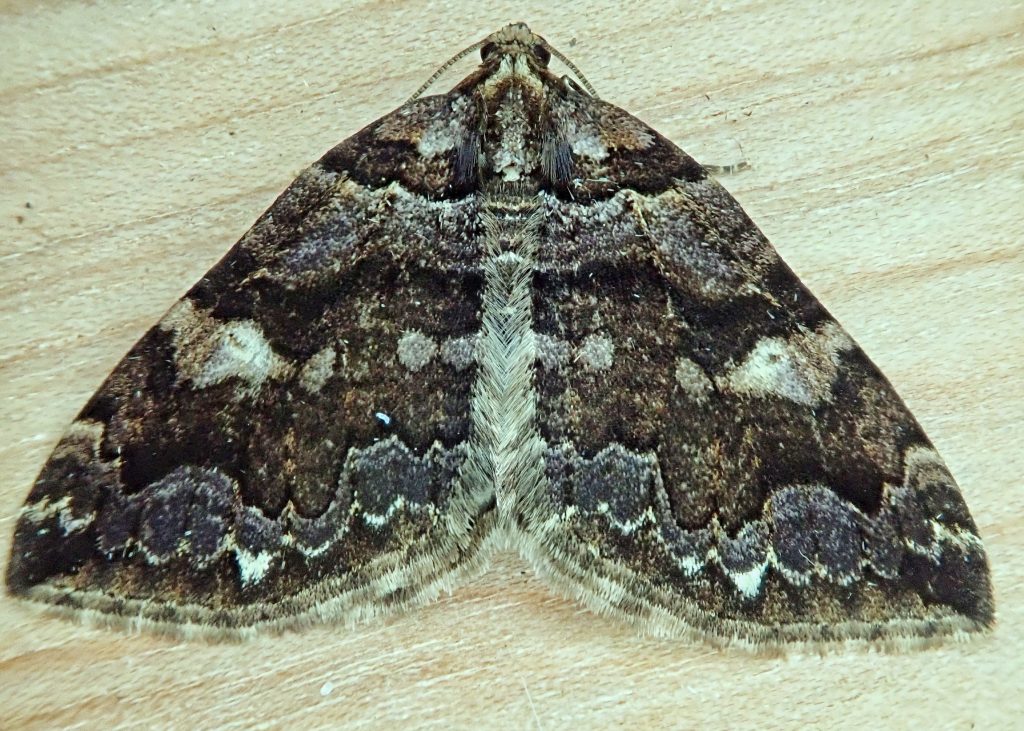
Anticlea spp moths have the uncommon distinction of sharing their genus name with the plant genus Anticlea, which now contains many of the death camas formerly in the genus Zygadenus (though our Zygadenus venenosus [Meadow Death Camas] is now Toxicoscordion venenosum). Fortunately for clarity of conversation Anticlea spp plants are not larval hosts to Anticlea spp. moths.
Anticlea was the mother of Odysseus in Greek mythology, and the word means ‘without fame’.
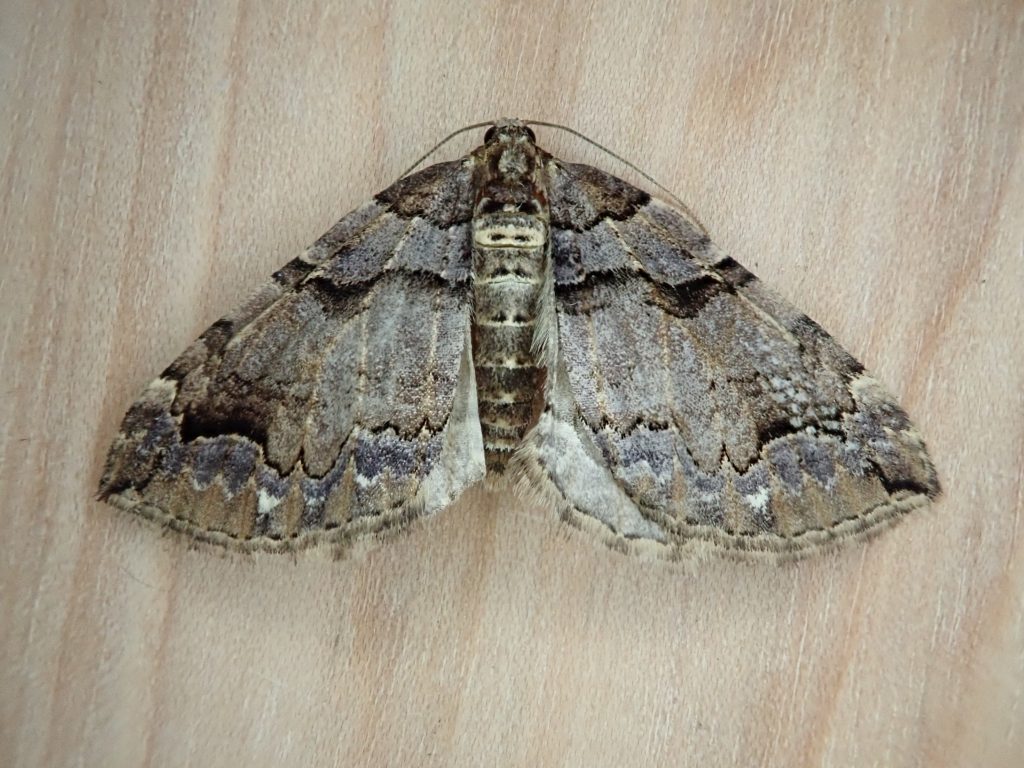
http://mothphotographersgroup.msstate.edu/species.php?hodges=7329
https://bugguide.net/node/view/14992
Size- FW length 18-20mm
Habitat- Forests and woodlands
Range- Region wide, though uncommon in arid, shrub steppe
Eats- Larval hosts are Rubus spp
Flight Season- February to June
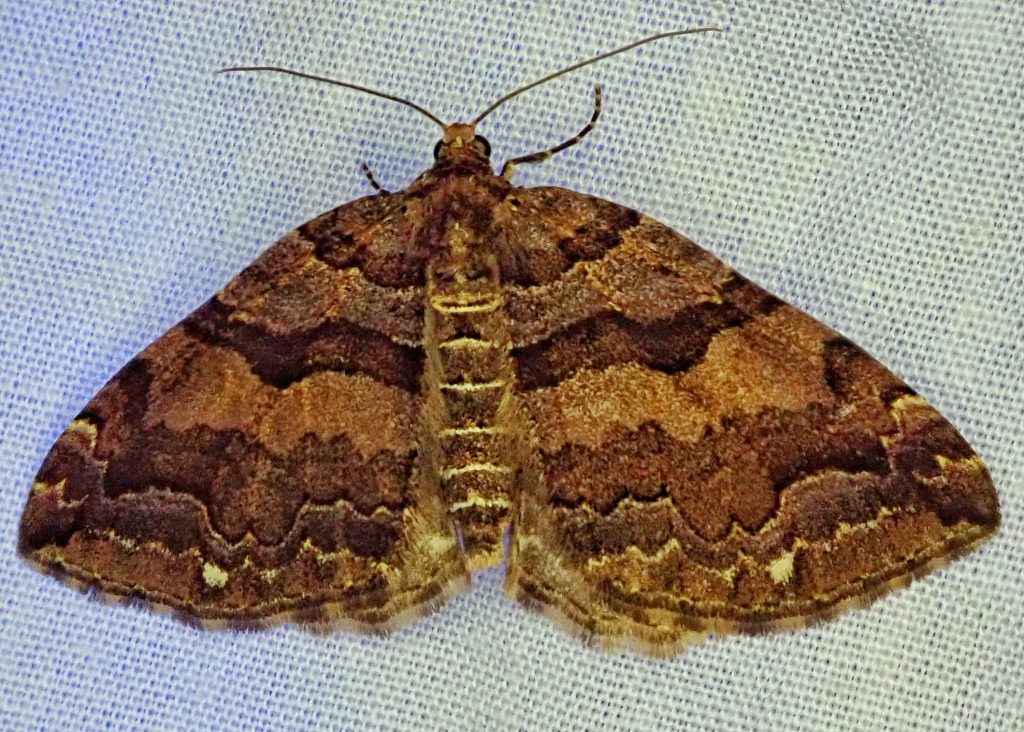
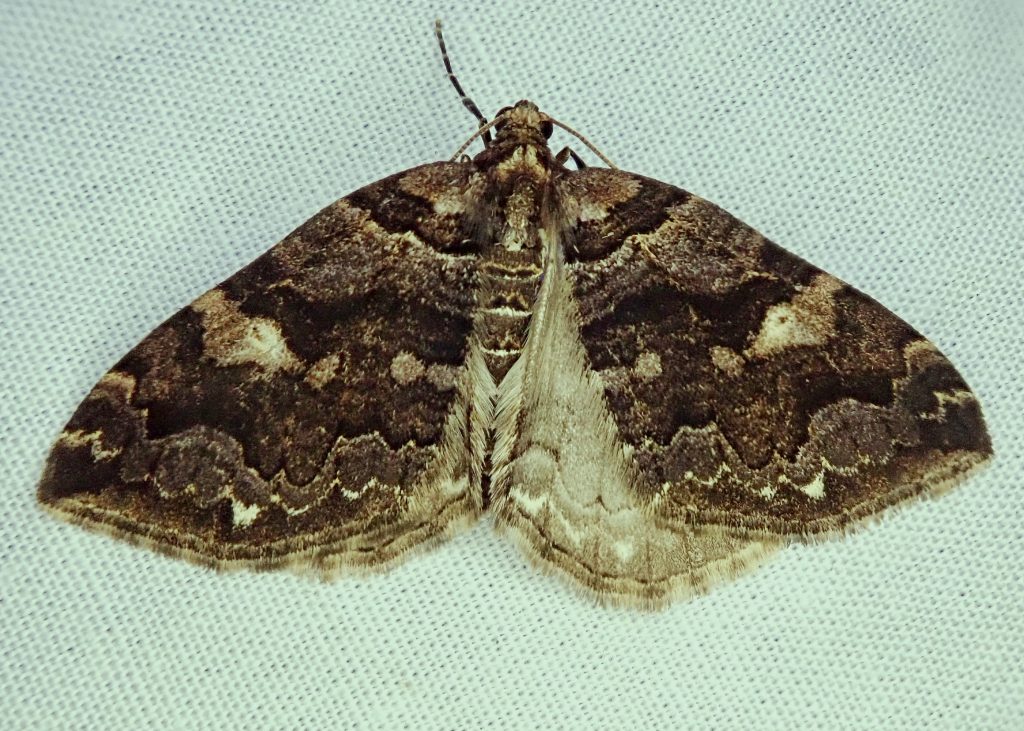
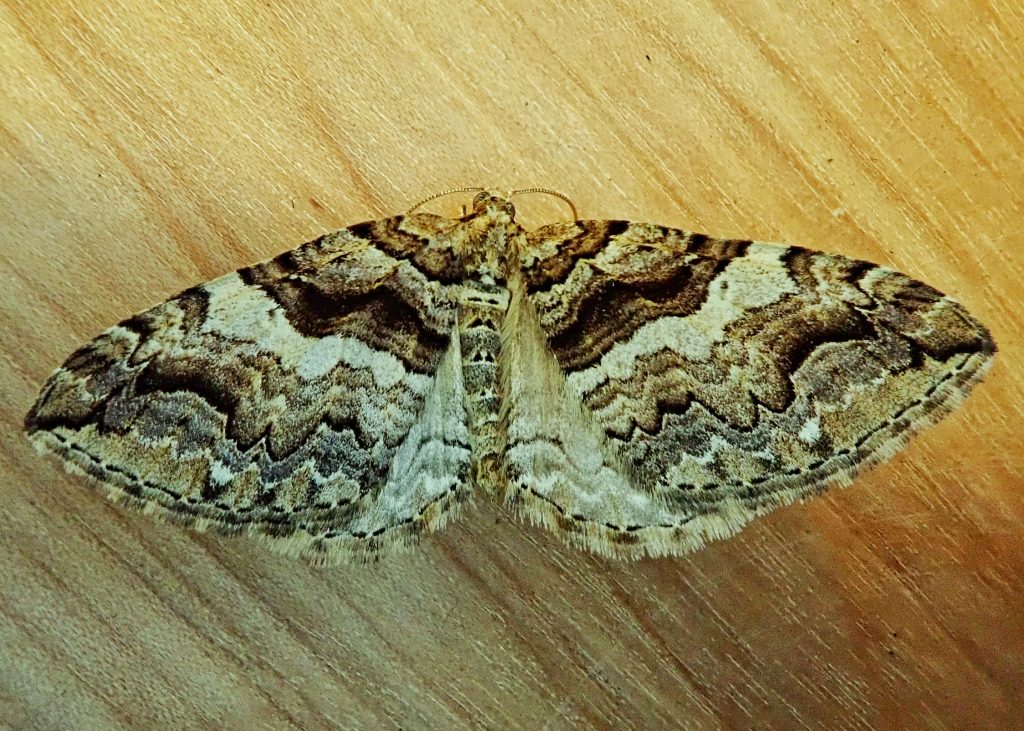
Very interesting! Thank you !
You’re welcome! I think it’s telling that many places call John Comstock one of the founders of the movement, but it was really Anna and her book “The Handbook of Nature Study” (1911) that made it a movement.
I can see Variable but why Carpet? Because they look like a pretty, abstract carpet design, or do they get into carpets and eat wool, for example (as larvae)?
It is because of the similarities to carpet designs. There are quite a few Geometridae that are called carpet moths.